Longxiang Jiang
PhyGNNet: Solving spatiotemporal PDEs with Physics-informed Graph Neural Network
Aug 07, 2022

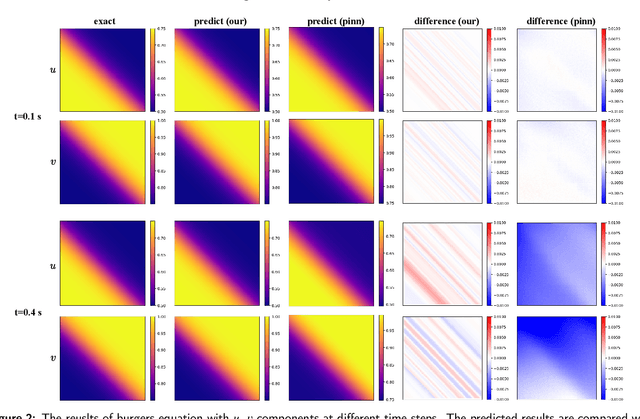

Abstract:Solving partial differential equations (PDEs) is an important research means in the fields of physics, biology, and chemistry. As an approximate alternative to numerical methods, PINN has received extensive attention and played an important role in many fields. However, PINN uses a fully connected network as its model, which has limited fitting ability and limited extrapolation ability in both time and space. In this paper, we propose PhyGNNet for solving partial differential equations on the basics of a graph neural network which consists of encoder, processer, and decoder blocks. In particular, we divide the computing area into regular grids, define partial differential operators on the grids, then construct pde loss for the network to optimize to build PhyGNNet model. What's more, we conduct comparative experiments on Burgers equation and heat equation to validate our approach, the results show that our method has better fit ability and extrapolation ability both in time and spatial areas compared with PINN.
Confidence-Aware Active Feedback for Efficient Instance Search
Oct 23, 2021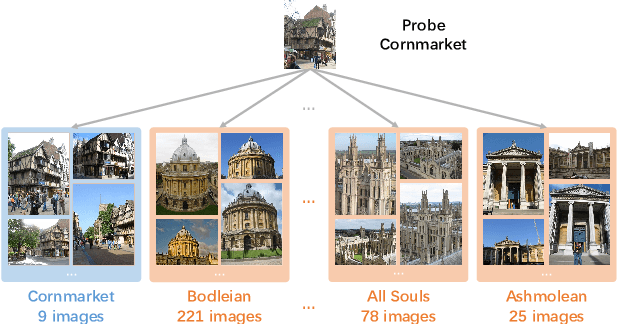
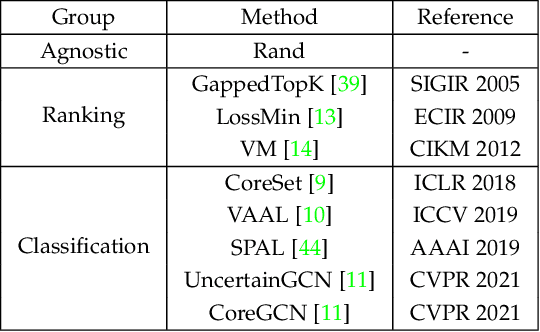
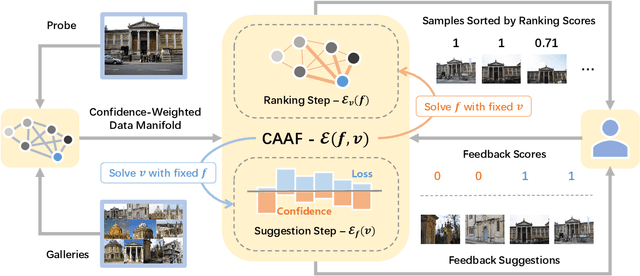
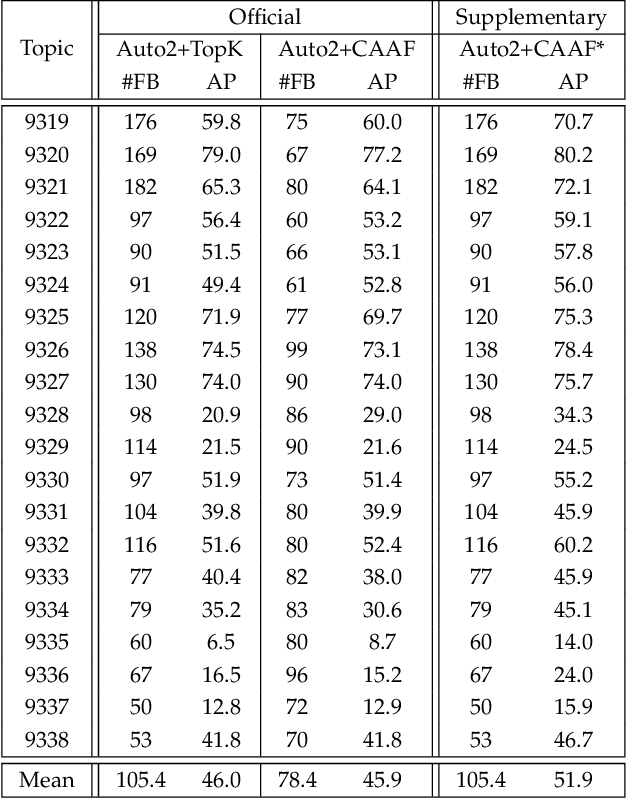
Abstract:Relevance feedback is widely used in instance search (INS) tasks to further refine imperfect ranking results, but it often comes with low interaction efficiency. Active learning (AL) technique has achieved great success in improving annotation efficiency in classification tasks. However, considering irrelevant samples' diversity and class imbalance in INS tasks, existing AL methods cannot always select the most suitable feedback candidates for INS problems. In addition, they are often too computationally complex to be applied in interactive INS scenario. To address the above problems, we propose a confidence-aware active feedback (CAAF) method that can efficiently select the most valuable feedback candidates to improve the re-ranking performance. Specifically, inspired by the explicit sample difficulty modeling in self-paced learning, we utilize a pairwise manifold ranking loss to evaluate the ranking confidence of each unlabeled sample, and formulate the INS process as a confidence-weighted manifold ranking problem. Furthermore, we introduce an approximate optimization scheme to simplify the solution from QP problems with constraints to closed-form expressions, and selects only the top-K samples in the initial ranking list for INS, so that CAAF is able to handle large-scale INS tasks in a short period of time. Extensive experiments on both image and video INS tasks demonstrate the effectiveness of the proposed CAAF method. In particular, CAAF outperforms the first-place record in the public large-scale video INS evaluation of TRECVID 2021.
 Add to Chrome
Add to Chrome Add to Firefox
Add to Firefox Add to Edge
Add to Edge